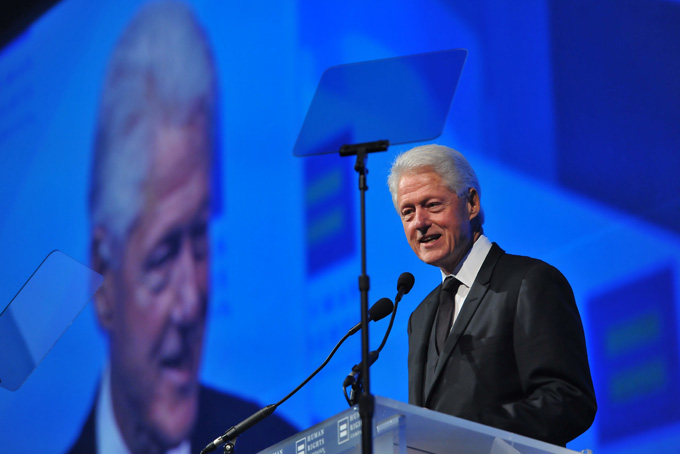When Donald Trump unexpectedly won the presidency in 2016, his political opponents included far-left progressives and “Never Trump” conservatives. Both saw Trump as a demagogue who would disregard the constitution, mismanage the federal government, and further harm America’s reputation abroad.
By the midterms, fair-minded observers realized Trump wasn’t as reckless as his opponents had predicted. Reason Magazine’s editor-at-large suggested that Trump was more similar to former presidents than his opponents were willing to admit. On trade, foreign policy, and other issues, the editor-at-large described Trump as Bill Clinton, George W. Bush, and Barack Obama without the charm and respect, which was a good thing.
Working-class Democrats who backed Trump recoiled from the Clinton comparison. They disparaged Clinton for signing the North American Free Trade Agreement, which made it easier for US firms to relocate operations to Mexico. These former Democrats backed Trump because he promoted their opinion that NAFTA was the “worst trade deal in history” and that Clinton was to blame for the loss of manufacturing jobs in the United States.
Single-issue voters find it difficult to accept that the presidential candidates they support will always resemble some part of predecessors they dislike. As Trump begins his second term in the White House, his intentions to substantially reduce foreign aid are reminiscent of Clinton.
Clinton became the first post-Cold War president of the United States when he was elected in 1992, a year after the Soviet Union collapsed. Without a rival superpower to compete with globally, J. Brain Atwood, administrator of the organization for International Development—which administers US foreign aid—stated that his organization will have to reduce half of its activities.
Another USAID official added that in order to complete this objective, the US must distinguish between countries where the US gets the most value for its aid investments and those where the US keeps programs for political reasons. In other words, countries that used to receive a lot of US aid because they were strategically vital during the Cold War saw significant decreases, while the rest of the foreign aid budget was redirected to current geopolitical issues.
Clinton’s opponents and foreign-aid advocates condemned Clinton’s decision to reduce foreign aid as shortsighted. They argued that it was in America’s best interests to maintain present levels of aid in order to safeguard fragile democracies, promote more respect for human rights in authoritarian regimes, and help alleviate starvation and poverty in Africa.
According to the Washington Post, the Clinton administration stated that their opponents’ arguments were insufficient to overcome the perception in Congress that foreign aid was an onerous expense and the public demand to prioritize cutting deficits, creating jobs, and solving America’s own problems.
Trump’s election in 2016 made him the fourth post-Cold War president, but he was the first president in the twenty-first century to seriously commit to the idea that the United States cannot afford to be embroiled in “endless wars” like Iraq and Afghanistan. Trump, on the other hand, initiated a trade war with China as part of a plan to bolster the US economy. Foreign policy analysts believe the tension between the United States and China marked the beginning of a new cold war. The experts believe China is attempting to erode America’s global influence in order to “shape a world antithetical to US values and interests.”
Trump didn’t conflate the “trade war” and the “new cold war.” Trump remained suspicious of the foreign policy expert’s geopolitical assessments, prompting the experts to declare him uninformed about world politics and the global order.
Joe Biden defeated Trump for reelection in 2020. Biden resumed the trade war with China but emphasized that competition with China does not imply confrontation, and then Biden declared that there will be no new cold war. Trump was re-elected president in 2024, and one of his first official acts was to freeze funds for foreign assistance in order to reassess and reduce USAID operations.
It’s worth noting that in the early 1960s, President Kennedy was dissatisfied with the State Department’s bureaucratic efforts to provide overseas assistance to offset the Soviet Union’s global influence during the Cold War. Kennedy established USAID as a separate body to more effectively prevent other countries from forming relationships with the Soviet Union.
After the Cold War ended, Clinton reevaluated and cut foreign assistance. Biden said that there will be no new Cold War, and Trump’s proposals to slash USAID are no different than Clinton’s.
